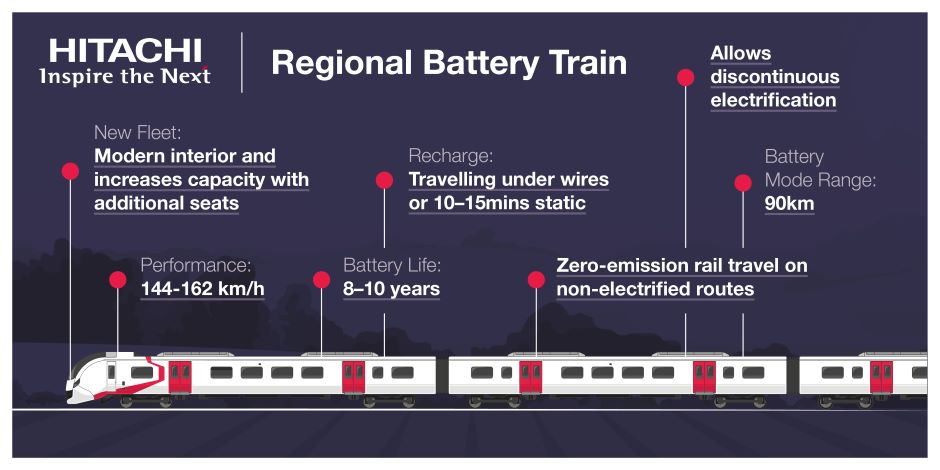Hyperdrive Innovation and Hitachi Rail to develop battery tech for trains
Hyperdrive Innovation and Hitachi Rail are to develop battery packs to power trains and create a battery hub in the North East of England.
Hitachi Rail analysis estimates the potential market for Hyperdrive and Hitachi’s battery technology is over 400 trains.
Powering up a British battery boom
Hitachi starts work on all-electric 803s for East Coast Trains
“The partnership with Hyperdrive creates shovel-ready opportunity for new battery trains to be ordered now,” said Andrew Barr, Group CEO, Hitachi Rail. “As well as new trains, this is also a window of opportunity to cut carbon and supercharge a green recovery in the North East and across the UK.”
Hitachi has identified its fleets of 275 trains as potential early recipients of the batteries for use in the UK, as well as installing them on new metro and intercity trains.

According to Hitachi, a widespread adoption of battery train technology could help to create a market for Hyperdrive Innovation to increase its manufacturing capability up to 30,000 battery packs per year and double the number of jobs at its HYVE factory in Sunderland.
Register now to continue reading
Thanks for visiting The Engineer. You’ve now reached your monthly limit of news stories. Register for free to unlock unlimited access to all of our news coverage, as well as premium content including opinion, in-depth features and special reports.
Benefits of registering
-
In-depth insights and coverage of key emerging trends
-
Unrestricted access to special reports throughout the year
-
Daily technology news delivered straight to your inbox










UK Enters ‘Golden Age of Nuclear’
The delay (nearly 8 years) in getting approval for the Rolls-Royce SMR is most worrying. Signifies a torpid and expensive system that is quite onerous...